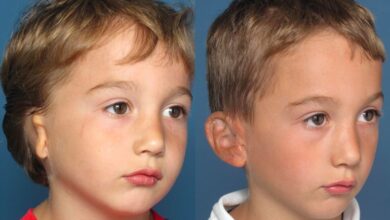Unlocking the Mysteries of the Quantum Body: Exploring the Intersection of Quantum Physics and Human Physiology

The concept of the quantum body represents an intriguing convergence of two seemingly disparate fields: quantum physics and human physiology. While quantum physics delves into the fundamental nature of reality at the subatomic level, human physiology concerns itself with the complex workings of the body’s cells, tissues, and organs. Yet, recent scientific discoveries and theoretical frameworks suggest that these two domains may be more closely intertwined than previously imagined, giving rise to a new frontier of exploration known as quantum biology.
At its core, quantum biology seeks to understand how quantum phenomena – such as superposition, entanglement, and coherence – manifest within living organisms and influence biological processes. One of the central tenets of quantum biology is the notion that quantum effects may play a significant role in fundamental biological processes, such as photosynthesis, enzyme reactions, and even consciousness itself.
One area of particular interest within the realm of quantum biology is the study of quantum coherence in biological systems. Coherence refers to the ability of particles to maintain a synchronized state of oscillation, allowing them to behave collectively rather than as individual entities. In biological systems, coherence has been observed in processes such as energy transfer within photosynthetic complexes, where quantum coherence may enhance the efficiency of light harvesting and energy conversion.
Another fascinating aspect of quantum biology is the phenomenon of quantum tunneling, whereby particles can pass through energy barriers that would be insurmountable according to classical physics. In the context of human physiology, quantum tunneling may play a role in enzymatic reactions, allowing chemical reactions to occur with greater efficiency and specificity than would be possible through classical mechanisms alone.
Furthermore, the concept of quantum entanglement – whereby particles become correlated with one another in such a way that the state of one particle instantaneously influences the state of another, regardless of the distance between them – has profound implications for our understanding of biological systems. While the existence of quantum entanglement in macroscopic biological structures remains a topic of debate, some researchers speculate that it may play a role in phenomena such as neural synchronization and information processing within the brain.
The implications of quantum biology extend beyond the realm of basic science and have potential applications in fields such as medicine and biotechnology. For example, insights gained from studying quantum coherence in photosynthetic complexes could lead to the development of more efficient solar energy technologies. Similarly, understanding the role of quantum tunneling in enzymatic reactions could inspire the design of novel drugs and catalysts with enhanced efficacy and specificity.
In addition to its scientific significance, the concept of the quantum body holds profound implications for our understanding of human health and wellness. By recognizing the interconnectedness of quantum phenomena and biological processes, we may gain new insights into the underlying mechanisms of health and disease. From the regulation of cellular metabolism to the maintenance of immune function, quantum biology offers a fresh perspective on the intricate dance of molecules and energy within the human body.
In conclusion, the concept of the quantum body represents a fascinating intersection of quantum physics and human physiology, shedding light on the profound connections between the microscopic realm of atoms and molecules and the macroscopic world of living organisms. While much remains to be discovered, the emerging field of quantum biology holds promise for revolutionizing our understanding of life itself, offering new avenues for exploration and discovery in the quest to unravel the mysteries of the quantum body.






